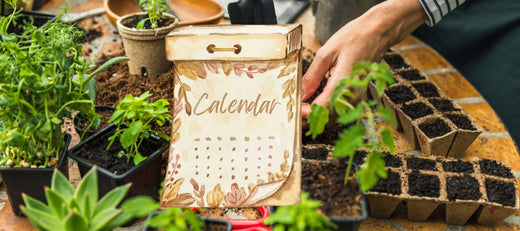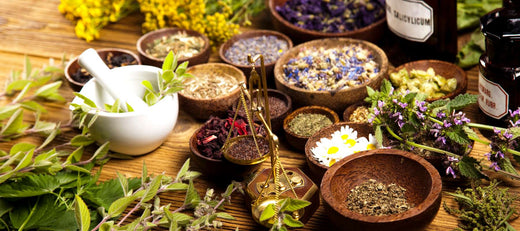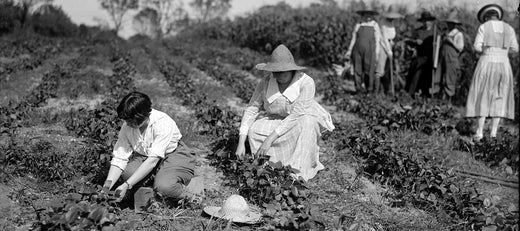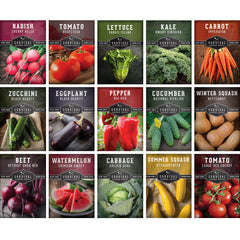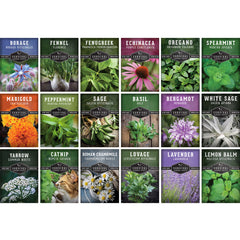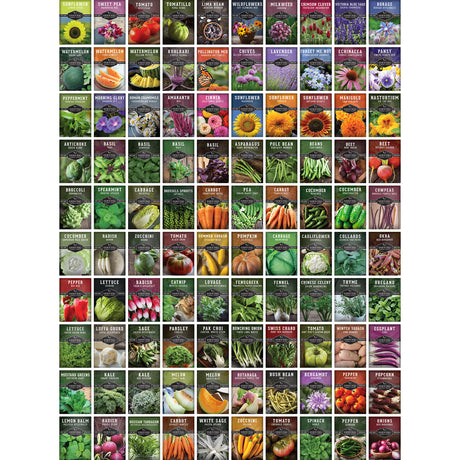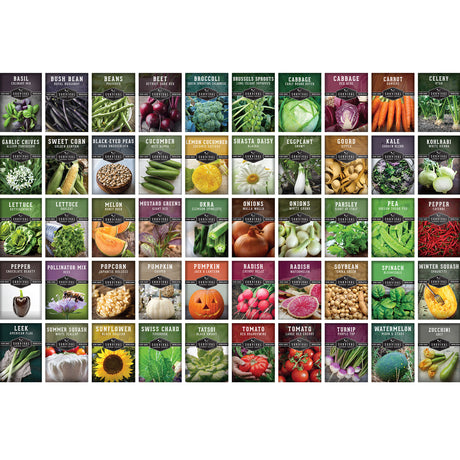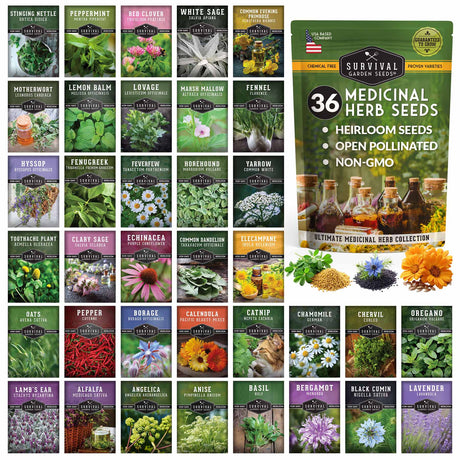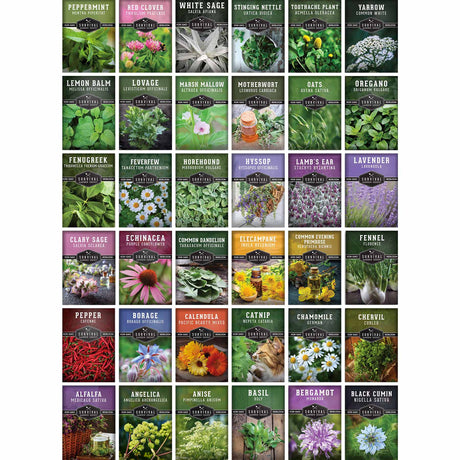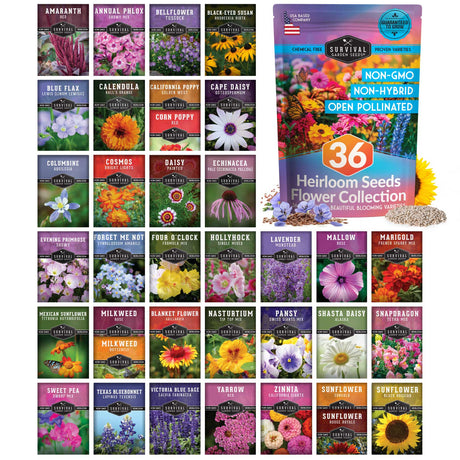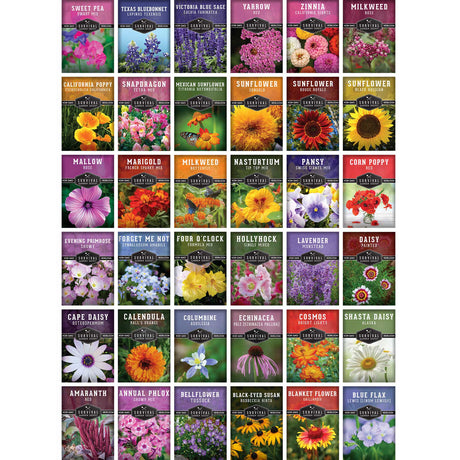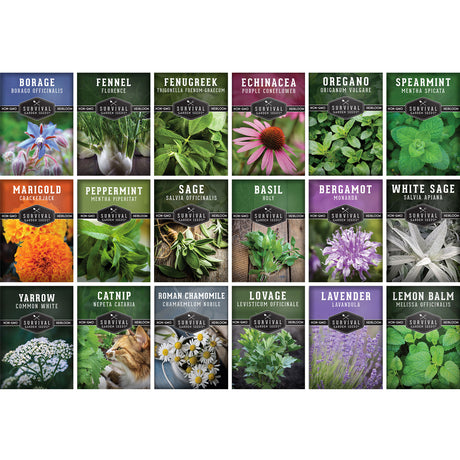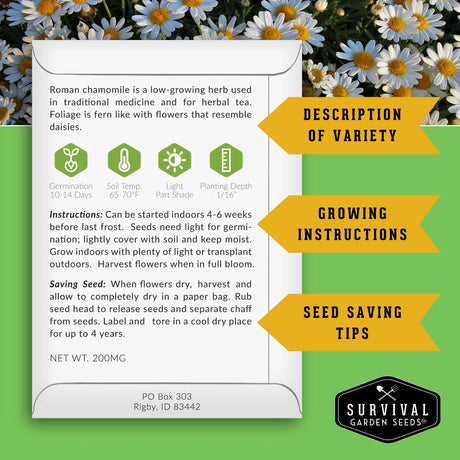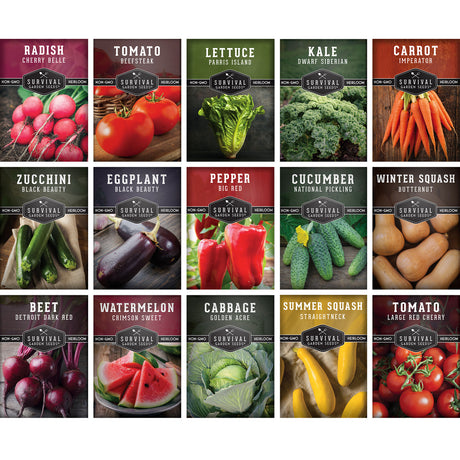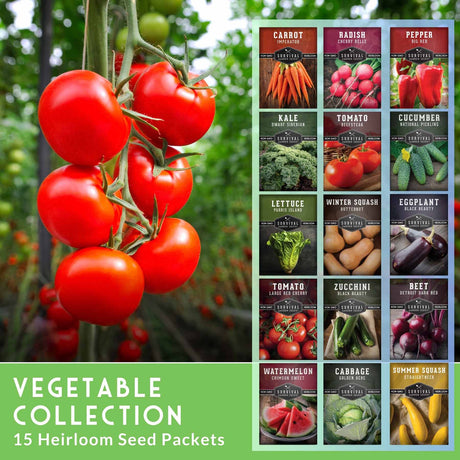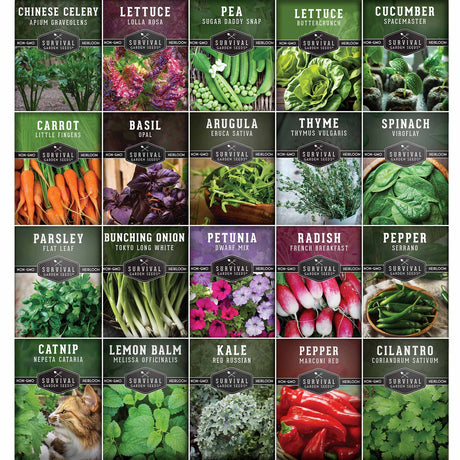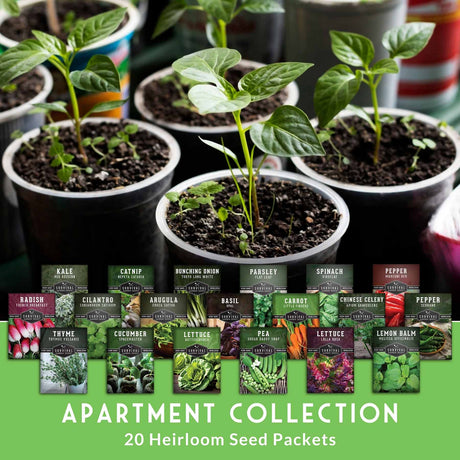At its most basic, a survival garden is exactly what it sounds like, a garden designed to feed you and your family. It requires more investment and work than just your average vegetable garden or Victory Garden, but it also can yield huge rewards. The goal of survival gardening is to meet the food needs of your family - without having to take any extra trips to the supermarket.
Reasons for Growing a Survival Garden
Let’s talk about why you might want your own survival garden. There are many reasons for starting one, and each of them has merit.
Emergency Preparedness - Being able to grow enough food for your family can provide you with real peace of mind. Historically, disasters can cause short-term food shortages or long-term, widespread hunger. When you have a survival garden in place ahead of time, you increase your own chances of not only making it through the event - but actually thriving and coming out ahead.
Self-Sufficiency - Complete independence is probably a long way away for most of us, but every step in that direction can be richly rewarding for people who are looking for more self-reliance. A working homestead with a garden that provides for the whole family and maybe even the neighbors is a dream come true for some people.

Ethical Considerations - For many of us, the modern, fast-paced, disposable lifestyle has lost its appeal. The corporate food industry - from agriculture all the way to retail - is plagued with ethical issues. It’s almost impossible to keep track of every product you buy and every store you shop at and all of the possible pitfalls. By growing most of your own food, you are able to gain control over how your food is grown and opt out of that ethical nightmare.
Quality Produce - Supermarkets sell food grown in large monocultures optimized for fast, easy harvest and applications of pesticides and herbicides. The food is often picked well before it is ripe so that it can be shipped easily and stored longer. Homegrown food is grown in better conditions, and usually with far fewer harmful chemicals. It is typically harvested at the peak of ripeness, giving it better flavor and more nutrition. And you’re much less likely to deal with a nasty E. coli outbreak in your home garden.
More Diversity - Survival gardens allow you more access to delicious heirloom varieties that your grandparents grew. Grocery store varieties are usually chosen for popularity, shelf stability, uniformity, quick yields, and appearance. When you grow your own, you have so many more options and can choose what you truly enjoy eating instead of what’s popular and available at the store.
Save Money - This one is pretty straightforward. If you grow your own food, you save a lot of money. For the cost of seeds, water, fertilizer, tools, and some sweat equity, you can grow an abundance of food for pennies on the dollar. Survival gardens are much more resilient to problems that can drive up the cost of food like inflation, scarcity, and supply chain issues.
For Fun - Everything we’ve talked about above can really add up, but there’s also the fact that some people love to grow gardens, and a survival garden can be the ultimate challenge. It can provide you with an enormous sense of purpose, accomplishment, and meaning.
Should I Grow a Survival Garden?
If that list is appealing to you, you might be ready to grow your own survival garden, or you might be on the fence. Let’s talk about the basics of whether a survival garden is right for you right now.
Motivation - All of the reasons for growing are fantastic, but will they keep you going even when the days are hot, the bugs are biting, and the weeds are growing? Be realistic with your expectations. You might be the type of person who needs to go big, or you might do better to start small and build on your successes.
Experience - Novice gardeners are welcome to the survival gardening arena, of course! The more you grow, the more you learn. But doing your homework on what crops to grow where and when, what supplies you need, and what pitfalls you might encounter can make a huge difference in getting you started so that you can start getting more experience and building your skills.

Growing Space - Your garden space will need to have adequate sunlight, be fairly level, and have access to water nearby. It should be somewhere close by so you can maintain it regularly, and it needs to be easy to get to. You may decide to grow some foods in containers or raised beds, or you may need to set up a system for irrigating your crops.
Time and Energy - Growing a survival garden takes time, and it also takes bursts of energy. Harvest time especially can mean a flurry of activity to can and put away food for the long haul. You may be exhausted, but you’ll have a full pantry and you’ll sleep well at night when you’re done.
Help - All of this hard work and investment means you may have to recruit extra help at certain times of the year if you’re not a full-time homesteader. Do you have someone who is willing to share the load with you? Think about your plans for getting things done, and also your backup plans for when you’re sick or you have to adapt to changes.
Ready to Get Started?
Some people start survival gardening as disaster or emergency preparedness. Others just like the idea of living a more sustainable and self-sufficient life. And many people fall somewhere in between - growing a garden to feed their family, but making sure they have enough “just in case” the garden is their main source of food. A Victory Garden or even an apartment patio garden can still make a big difference and be a lot of fun to grow. No matter what your motivation or level of investment is, gardening is a skill that will pay off richly.


